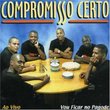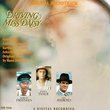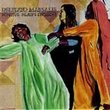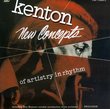| All Artists: Heitor Villa-Lobos, Robert Whitney, Jorge Mester, Louisville Orchestra Title: Villa-Lobos: Erosion; Dawn in a Tropical Forest; Danses Africaines; Bachianas Brasileiras No. 4 Members Wishing: 0 Total Copies: 0 Label: First Edition Release Date: 10/14/2003 Genres: Classical, Latin Music Styles: Forms & Genres, Concertos, Theatrical, Incidental & Program Music, Historical Periods, Modern, 20th, & 21st Century, Instruments, Keyboard, Symphonies Number of Discs: 1 SwapaCD Credits: 1 UPC: 809157000167 |
Search - Heitor Villa-Lobos, Robert Whitney, Jorge Mester :: Villa-Lobos: Erosion; Dawn in a Tropical Forest; Danses Africaines; Bachianas Brasileiras No. 4
 | Heitor Villa-Lobos, Robert Whitney, Jorge Mester Villa-Lobos: Erosion; Dawn in a Tropical Forest; Danses Africaines; Bachianas Brasileiras No. 4 Genres: Classical, Latin Music |
Larger Image |
CD DetailsSimilar CDs
Similarly Requested CDs
|
CD ReviewsInadequate production this one L. Ackerman | Ashburn, VA (USA) | 11/06/2005 (1 out of 5 stars) "This is one of the least succesfull First Edition CDs I have heard so far. Surely it is to be expected that the MONO recordings are not up to par sonically, but the second track (Dawn...) is just too distorted to warrant a release. Even the Stereo recordings leave a lot to be desired as performances and sound. Villa-Lobos' exotic music needs outstanding sound to be fully appreciated. To add insult to injury, the producers have NOT left enough time between individual pieces. More: booklet says 'Danses Africaines' is from 1929, back jacket 1953. Bad proposition." Aged sonics make this Louisville reissue of limited interest Discophage | France | 01/16/2008 (3 out of 5 stars) "The interest of this disc of Villa Lobos Louisville reissues derives first from its historical value: these were all premiere recordings (although that claim made by the booklet is obviously mistaken in the case of Bachianas Brasileiras #4, a relatively recent recording), and two pieces featured here, Erosion and Dawn in a Tropical Forest, were also Louisville commissions. Erosion was in fact one the earliest recorded and published Louisville recordings: it came out in 1952 on Columbia ML 4615 (with Dello Joio's Triumph of Saint Joan, now reissued on Norman Dello Joio: Homage to Haydn / The Triumph of St. Joan Symphony), the first of three such Columbia releases, before the establishment of the orchestra's famous record label, First Edition Records, in 1954. As for "Dawn in a Tropical Forest", it made the first such Louisville LP release, 545-01 , paired with Hasley Stevens' Triskelion and Paul Creston's Invocation & Dance (none reissued), the first in a batch of twelve subscription LPs published in 1954. Obviously, Villa Lobos was an early favorite of Louisville and its music director Robert Whitney.
The two next pieces are later, and stereo recordings, from 1969 (Danses Africaines, originally released on Lou 695 with John Addison's Trumpet Concerto, now on British Modern) and 1977 (Bachianas # 4, LS 762 with Priscilla McLean's Variations and Mozaics on a Theme of Stravinsky, not reissued). Another interest of these reissues is also that, other than BB4, these pieces are fairly rare on disc - more back then in the fifties than now, as Marco Polo has released in the early 1990s a modern recording of Erosion and Dawn, paired with two other typical Villa Lobos "Amazonian" compositions, Genesis and Amazonas (Villa-Lobos: Genesis / Erosao / Amazonas / Dawn in a Tropical Forest), as well as another one by the same forces with the African Dances (Villa-Lobos: Symphonic Dances (Rudepoema; Dancas caracteristicas africanas; Danca frenetica; Danca dos mosquitos) - the titles differ slightly but they are the same pieces, although Mester has apparently exercised cuts in the second and third dances). The "Danses africaines", a 1953 orchestration of pieces originally composed for piano in 1914, are not very profound but entertaining, colorful and boisterous orchestral showpieces inspired by Brazilian rhythms and dances, as typical as anything written in that style by their composer, at times perhaps smacking a little too much of the kind of cross-over latino-classical illustrated by someone like Morton Gould. As for BB 4 (again the 1941 orchestration of what was first conceived and completed in 1936 as a piano piece), there are too many recordings to count, starting with the composer's own with the French National Orchestra (Villa-Lobos par lui-même). This is Bach as he was understood and enjoyed in the thirties to sixties - grand, thick, heart-on-sleeve romantic, somewhat pedestrian and sentimental. The long opening Preludio:Introducao (10 minutes) is very much in the style of the Aria from the 3rd Suite played by the Berliners under Furtwangler. There is a nice motorism to the finale, though. Still, although the Bachianas Brasileiras are the set most eagerly associated with Villa Lobos, they are not my favorite in his output. On the other hand his "Amazonian" inspiration has produced marvelous works. It is an inspiration that accompanied Villa Lobos throughout his compositional career. Two of his earliest works were the symphonic poem "Amazonas" and the ballet "Uirapuru", from 1917. So it is significant that he should have returned to this inspiration in the early fifties (the ballet Genesis also dates from 1954), at the end of his life (he died in 1959). Erosion (or "The Origin of the Amazon River") and "Dawn in a Tropical Forest" are compositions of great evocative power, full of lush and exotic colors, starting with hushed and shimmering strings over exotic Brazilian percussion and woodwind birdcalls evoking an awakening in the Amazonian forest, and rising to sweeping, epic lyricism and grandeur. "Dawn" is a rather short piece - 8 minutes under the stewardship of Whitney - but "Erosion" is more substantial, almost twice as long. But these lush pieces, to be enjoyed at their full worth, require lush sonics, and this is where the rub lies: the aged, mono sonics of these Louisville recordings (even with what sounds like a deteriorated tape in "Dawn") deprive them of much of their impact. Imagine experiencing the Amazonian forest on a small, black and white TV set! Add to that that Whitney's tight-fisted approach, while delivering great snap, lacks sensuousness and grandeur. Duarte on Marco Polo has the sonics, the lush and sensuous atmosphere and the grandeur, but he sounds heavily plodding in the fast sections. In "Dawn", David Montgomery on Arte Nova (Villa-Lobos: Orchestral Works) gives us the best of both worlds, I find: Whitney's drive and bright sonics, with glaringly spotlighted solo instruments which, at times, give more than with Duarte an impression of beasts shouting in the tropical forest, rather than just music instruments playing atmospheric tunes. A final note: the stereo sonics in Danses Africaines are rather crude (not inappropriately for the pieces) and detailed, but I hear, in the softer passages and with headphones, a background noise which sounds very much like surface noise from an LP, and which seems to point to transfer directly from an LP, apparently belying the label's claim that the transfer was made from the original two-track stereo session master. This is something I have noticed on other First Edition Reissues. So this is to be recommended only to the Louisville collector or the Villa Lobos completist, for sake of the historical significance of these recordings. For those interested only in good recordings of the pieces, the Marco Polo collection is a better option for the Amazonian ones, and for the Bachianas, anything goes, there is no dearth of choice. The problem remains with the African Dances, as despite Mester's cuts and sonic deficiencies, his drive and dynamism suit the pieces better than Duarte's grand and powerful but rather elephantine approach. But these are not indispensable pieces. " |














